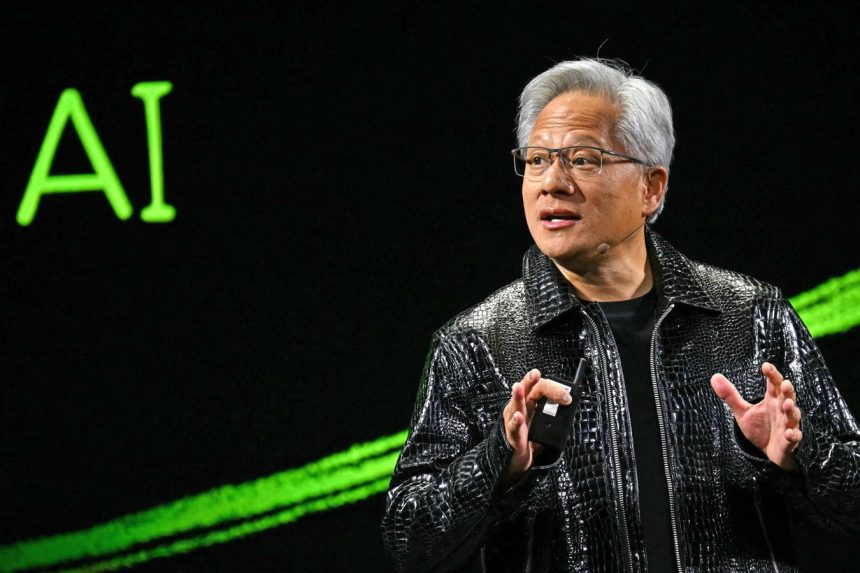The rise of artificial intelligence (AI) is reshaping our understanding of human potential, with prominent figures in the tech industry envisioning AI not as a replacement for human workers, but as a powerful tool for augmentation, akin to a personalized tutor, mentor, or coach. Nvidia CEO Jensen Huang, leading a company at the forefront of AI development, champions this perspective. He describes AI as a means to eliminate the drudgery of work while simultaneously lowering the barriers to acquiring knowledge in various fields. Huang emphasizes his own experience of being surrounded by exceptionally talented individuals and how interacting with them, much like interacting with AI, doesn’t diminish his own value but rather empowers him to pursue more ambitious goals. This sentiment underscores the potential for AI to become a constant source of support and inspiration, fostering continuous learning and professional growth. He encourages everyone to embrace AI tutoring as a crucial step toward career advancement.
Huang’s vision of AI-driven human enhancement is echoed by other industry leaders, including Salesforce CEO Marc Benioff. Benioff predicts a future where CEOs manage both human and digital workforces, signaling the integration of AI agents into the very fabric of the workplace. This shift necessitates adaptation and a willingness to collaborate with AI colleagues. The idea of integrating AI into daily workflows isn’t a futuristic concept but a present reality, urging individuals and organizations to harness the power of AI coaching and tutoring without delay. This proactive adoption, according to Huang, is the path to becoming “superhuman” – not through inherent abilities, but through the leverage provided by superhuman AI. This collaborative approach frames AI as an extension of human capabilities, amplifying our potential rather than supplanting it.
The concept of AI augmentation takes a dramatic leap forward with Elon Musk’s Neuralink, a company developing brain-computer interfaces (BCIs). These implantable devices aim to create a direct link between the human brain and AI, enabling users to seamlessly access information and interact with technology using their thoughts. The FDA’s approval of human trials for Neuralink’s device in 2023 marks a significant milestone in this field. The envisioned outcome is near-instantaneous access to the power of AI from within the mind, potentially revolutionizing learning, communication, and human interaction with technology. The device, a coin-sized implant with microscopic wires capable of reading neuron activity, holds the promise of transforming how we process information and interact with the digital world.
However, the integration of AI, especially through BCIs, presents complex questions about the future of education and critical thinking. The prospect of having constant access to AI-driven insights raises concerns about the potential erosion of human cognitive skills and the devaluation of traditional educational practices. If AI can readily provide answers, write essays, or generate code, the motivation for independent learning and problem-solving might diminish. This challenge requires careful consideration of how to integrate AI tutors and coaches into the education system without undermining the development of essential human skills. The balance lies in utilizing AI as a supplement to human learning rather than a replacement, ensuring that individuals retain their critical thinking abilities and the desire to acquire foundational knowledge.
Educators are already grappling with the implications of readily available AI tools like ChatGPT. While these tools can be valuable resources for learning and mentorship, their misuse can hinder the development of crucial skills. Andrew Martin, a professor of educational psychology, points out that over-reliance on AI for schoolwork could discourage collaborative learning and independent thought. The challenge for education lies in harnessing the power of AI while promoting essential human interaction and critical thinking. The integration of AI into education must be carefully managed to ensure that it enhances, rather than replaces, the development of essential skills.
Ultimately, the potential of AI to enhance human capabilities lies in how we choose to utilize it. AI offers the opportunity to become more efficient, knowledgeable, and innovative, but its effectiveness depends on our ability to integrate it thoughtfully into our lives and work. Embracing AI as a coach, mentor, and tutor, while maintaining a focus on human skills and critical thinking, is the key to unlocking the true potential of this transformative technology. The future of work hinges on our ability to strike this balance, ensuring that AI empowers us to reach new heights of human potential rather than diminishing our inherent abilities.



